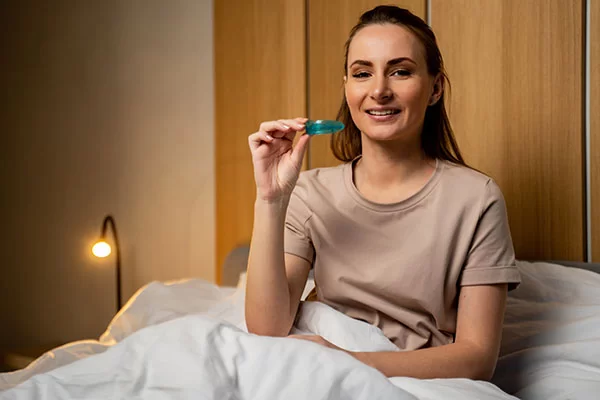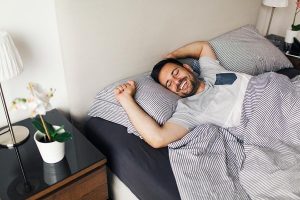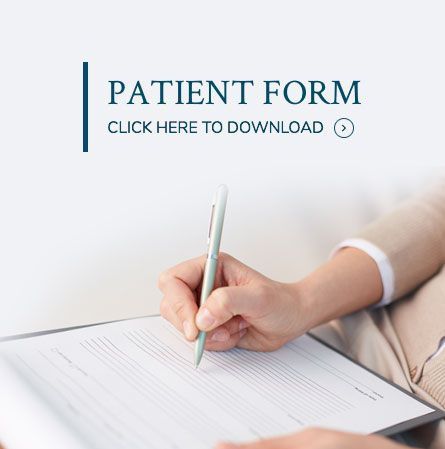Get the Restful Sleep You Deserve
Are you searching for a non-invasive, convenient solution to manage your sleep apnea in Wilmington or Seaford, DE? Look no further! At Brown and Baran Family Dentistry, Drs. Paul Brown and Chris Baran offer state-of-the-art oral appliance therapyas an effective alternative to CPAP (continuous positive airway pressure) machines. Say goodbye to restless nights and enjoy the restorative sleep you need to wake up refreshed.
Ready to start your journey to better sleep? Contact our Wilmington office at (302) 999-7600or our Seaford office at (302) 536-7589today.
What Is Oral Appliance Therapy?
Oral appliance therapyis a cutting-edge, custom-fitted treatment option for sleep apnea. These devices resemble mouthguards or retainers and work by repositioning the jaw to maintain an open airway, preventing the soft tissue collapse that leads to obstructive sleep apnea (OSA).
What is Obstructive Sleep Apnea?
Obstructive sleep apneais a serious, yet common, sleep disorder characterized by repeated interruptions in breathing during sleep. These interruptions, or apneas, occur when the throat muscles relax too much, causing a temporary blockage of the upper airway. As a result, people with OSA experience brief pauses in breathing, often leading to disrupted sleep and daytime fatigue.
How Does Oral Appliance Therapy Work?
Oral appliances work by gently repositioning the jaw and tongue, ensuring the airway remains open during sleep. This reduces sleep apnea symptoms such as snoring, gasping for air, and excessive daytime sleepiness.
During your initial consultation with Dr. Brown or Dr. Baran, we’ll assess your oral health and sleep apnea condition. If oral appliance therapy is right for you, we’ll take impressions of your teeth to create a custom-fitted device.
Once your appliance is ready, we’ll provide detailed instructions on its use and care. We’ll also schedule regular follow-up appointments to monitor your progress and make any necessary adjustments.
Types of Oral Appliances
Mandibular Advancement Devices (MADs)
Mandibular advancement devicesare the most widely used type of oral appliance for sleep apnea. They work by repositioning the lower jaw (mandible) forward during sleep, which helps keep the airway open and prevent obstruction.
These devices typically consist of two separate trays for the upper and lower teeth, connected by adjustable hinges to allow for gradual advancement. MADs are custom-fit to the patient’s teeth and can be adjusted by our dentist to find the optimal jaw position for reducing sleep apnea symptoms.
Tongue-Retaining Devices (TRDs)
Tongue-retaining devicesare designed to hold the tongue in a forward position to prevent it from falling backward and blocking the airway. Unlike MADs, TRDs don’t reposition the jaw. Instead, they rely on suction or a bulb to hold the tongue in place.
TRDs may be a suitable option for individuals who can’t tolerate MADs or have dental issues that prevent them from using MADs.
Combination Devices
Some sleep apnea oral appliances combine features of both MADs and TRDs. These devices aim to advance the lower jaw while also providing tongue stabilization. Combination devices are customized to the patient’s oral anatomy and may offer enhanced effectiveness in certain cases.
Benefits of Oral Appliances
Oral appliance therapy offers several benefits as a treatment option for sleep apnea, including:
- Non-invasive: Unlike surgery, oral appliances don’t require any invasive procedures.
- Comfortable: They’re generally well-tolerated and more comfortable than other treatments like CPAP therapy.
- Portable: Oral appliances are small and portable, making them convenient for travel.
- Quiet: Unlike CPAP machines, they don’t produce noise.
- Improved compliance: Many patients find it easier to use oral appliances consistently compared to CPAP machines.
How Do I Know If I Need an Oral Appliance?
Candidacy for oral appliance therapy is determined based on several factors, including:
- Type of Sleep Apnea: Oral appliance therapy is primarily recommended for individuals with obstructive sleep apnea (OSA). It’s generally not used as a treatment for central sleep apnea, which results from a failure of the brain to signal the muscles to breathe.
- The Severity of Sleep Apnea: Oral appliance therapy is typically considered for individuals with mild to moderate OSA. For severe cases of OSA, other treatments like CPAP therapy or surgery may be more appropriate.
- Medical History: The patient’s medical history, including any underlying health conditions or dental issues, is assessed. This helps determine whether the patient can tolerate wearing an oral appliance and if there are any contraindications.
- Dental Health: The condition of the patient’s teeth and jaws is evaluated as oral appliances require proper dental support. Individuals with extensive dental work or missing teeth may not be suitable candidates.
- Compliance: Some patients may have difficulty adapting to wearing an oral appliance during sleep. Assessing the patient’s willingness and ability to comply with the treatment plan is essential.
- Preference: Patient preference plays a significant role in candidacy. Some individuals may prefer oral appliance therapy over other treatments like CPAP due to its comfort, portability, and quiet operation.
If you’re wondering if oral appliance therapy will work for you, contact our Wilmington office at (302) 999-7600or our Seaford office at(302) 536-7589to schedule a consultation.
Alternative Sleep Apnea Treatments
In some cases, our dentist may recommend using an oral appliance along with another type of sleep apnea treatment.
Continuous Positive Airway Pressure (CPAP) Therapy
CPAPis one of the most effective treatments for obstructive sleep apnea (OSA). CPAP machines deliver a continuous stream of oxygen through a mask to keep the airway open. It’s a tried-and-true method of sleep apnea treatment.
Bi-level Positive Airway Pressure (BiPAP) Therapy
BiPAP machinesprovide two levels of air pressure — one for inhalation and another for exhalation. These machines may be prescribed for patients who have difficulty tolerating traditional CPAP therapy, or those who require higher-pressure support.
Lifestyle Modifications
Making certain lifestyle changescan be beneficial for managing mild cases of sleep apnea or as adjunctive therapies. These lifestyle changes may include:
- Weight loss: Losing excess weight, especially around the neck, can reduce the severity of sleep apnea.
- Positional therapy: Some individuals experience sleep apnea primarily when sleeping on their back (supine position). Sleeping on one’s side may help reduce symptoms.
- Avoiding alcohol and sedatives: These substances can relax the throat muscles, exacerbating sleep apnea.

Frequently Asked Questions
Yes, oral appliances are designed with patient comfort in mind. The custom-made appliance fits snugly over the teeth and is personalized to your specific dental structure, minimizing any discomfort. You’ll find it surprisingly comfortable and easy to wear throughout the night, ensuring a restful sleep experience.
Oral appliance therapy has shown high effectiveness, particularly for individuals with mild to moderate obstructive sleep apnea. It offers a viable alternative to CPAP machines, which some find cumbersome. However, effectiveness may vary, and a thorough assessment is necessary to determine suitability for each individual.
Absolutely! Oral appliances used in therapy are compact and easy to carry, making them a convenient solution for travelers. Simply pack the appliance in its provided case, ensuring uninterrupted sleep and maintaining your treatment regimen wherever you go.
Many insurance plans cover oral appliance therapy for sleep apnea. Review your insurance policy or consult your provider to understand specific coverage. Dental practices experienced in sleep apnea treatment can assist in navigating insurance claims, maximizing your benefits, and making the treatment more accessible and affordable.
Schedule Your Appointment Today to Get Started!
Don’t let sleep apnea control your life. Oral appliance therapy at Brown and Baran Family Dentistry offers a comfortable and effective solution to improve your sleep and overall well-being.
Contact our Wilmington office at (302) 999-7600or our Seaford office at(302) 536-7589to schedule a consultation today. We proudly serve patients from Wilmington, Seaford, Pike Creek, Marshallton, and Stanton, DE.



